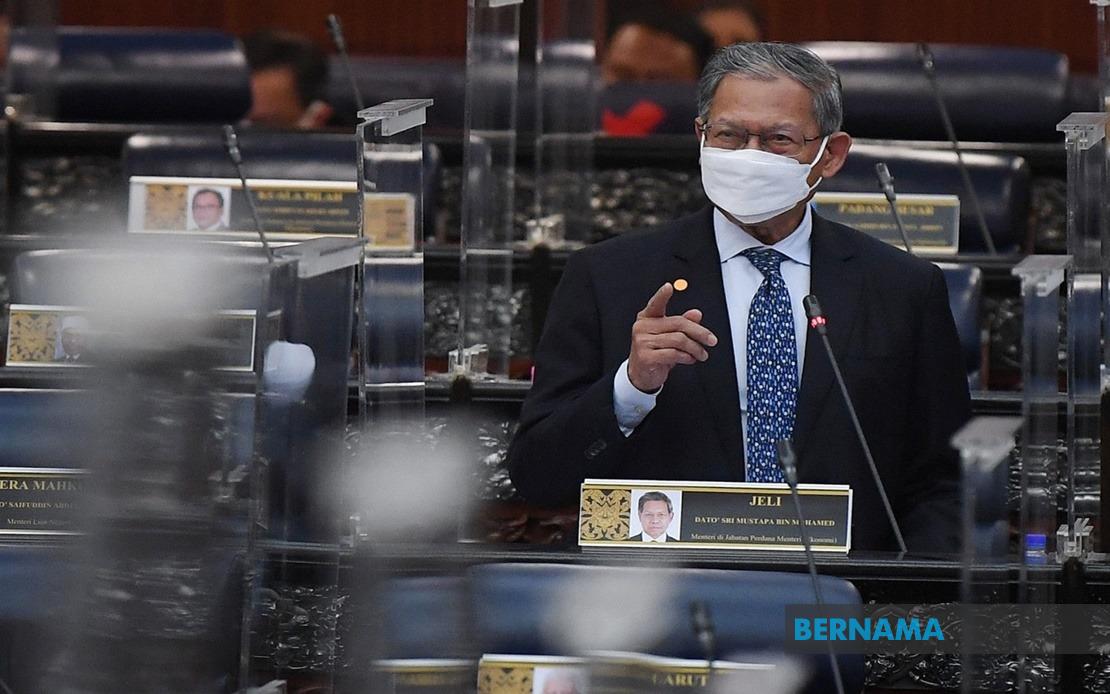News
Govt working with stakeholders to draft National Energy Policy

KUALA LUMPUR, Oct 5 -- The Economic Planning Unit (EPU), Ministry of Energy and Natural Resources and several stakeholders are in the midst of drafting the National Energy Policy (2021-2040).
Minister in the Prime Minister’s Department (Economy) Datuk Seri Mustapa Mohamed said the policy’s aim is to enhance economic resilience and energy supply assurance, achieve social fairness and justice, and ensure environmental sustainability.
He said energy security, which is defined by the International Energy Agency as the uninterrupted availability of energy sources at affordable prices, has many aspects.
"This includes long-term energy security to supply energy in line with economic developments and environmental sustainability.
“Meanwhile, short-term energy security refers to the energy system’s ability to react promptly to sudden changes in the supply-demand balance,” he said in response to a question from Wong Hon Wai (DAP-Bukit Bendera) in the Dewan Rakyat today on Malaysia’s energy security situation during the global energy crisis as well as the government’s plan to improve it.
Mustapa said that at this time, Malaysia does not have an energy supply problem as experienced in Europe, China and India.
The crises in those markets, he said, were due to, among others, increases in natural gas demand ahead of the winter season along with the surge in natural gas and coal prices.
“As an example, coal prices, which were around US$80 per tonne in early 2021, have reached about US$200 per tonne this month,” he said. (US$1=RM4.17)
According to him, the government is continuously studying the oil subsidy rationalisation issue as well as taking into account the consumers’ interest to reduce the people’s burden.
“For the purpose of having engagement on subsidy rationalisation, we will forward (the proposal) to the Finance Ministry for consideration. The same also for the National Energy Policy, which has been under government consideration for almost two years.
“There are several quite serious matters that need to be decided. We will arrange an engagement session (with the opposition),” he said.
According to Mustapa, Malaysia’s energy supply comes from natural gas (41 per cent), crude oil (25.8 per cent), coal (22.3 per cent), and hydro as well as other renewable energy sources (6.2 per cent).
-- BERNAMA
Other News
Sarawak Lepasi Sasaran Kapasiti Gabungan Tenaga Boleh Baharu Tahun Ini - Abang Johari

Oleh Nur Ashikin Abdul Aziz
SINGAPURA, 21 Okt (Bernama) -- Sarawak mencapai 62 peratus sasaran campuran kapasiti tenaga boleh baharu (TBB) tahun ini, melepasi sasaran 60 peratus yang digariskan dalam Strategi Pembangunan Pasca COVID-19 (PCDS) 2030.
Sarawak Pacu Pertumbuhan Tenaga Boleh Diperbaharui Untuk Manfaat ASEAN - Premier

SINGAPURA, 21 Okt (Bernama) -- Sarawak komited menyokong peralihan tenaga boleh diperbaharui di Asia Tenggara dengan memanfaatkan potensinya sebagai "Bateri ASEAN," yang akan membekalkan tenaga bersih menerusi sambungan Grid Kuasa Borneo dan ASEAN.
Belanjawan 2025 Percepat Peralihan Kepada Tenaga Bersih - Solarvest

KUALA LUMPUR, 19 Okt (Bernama) -- Belanjawan 2025 merupakan satu langkah ke arah mempercepat peralihan kepada tenaga bersih di Malaysia, kata Solarvest Holdings Bhd.
© 2025 BERNAMA. All Rights Reserved.
Disclaimer | Privacy Policy | Security Policy This material may not be published, broadcast,
rewritten or redistributed in any form except with the prior written permission of BERNAMA.
Contact us :
General [ +603-2693 9933, helpdesk@bernama.com ]
Product/Service Enquiries [ +603-2050 4466, digitalsales@bernama.com ]